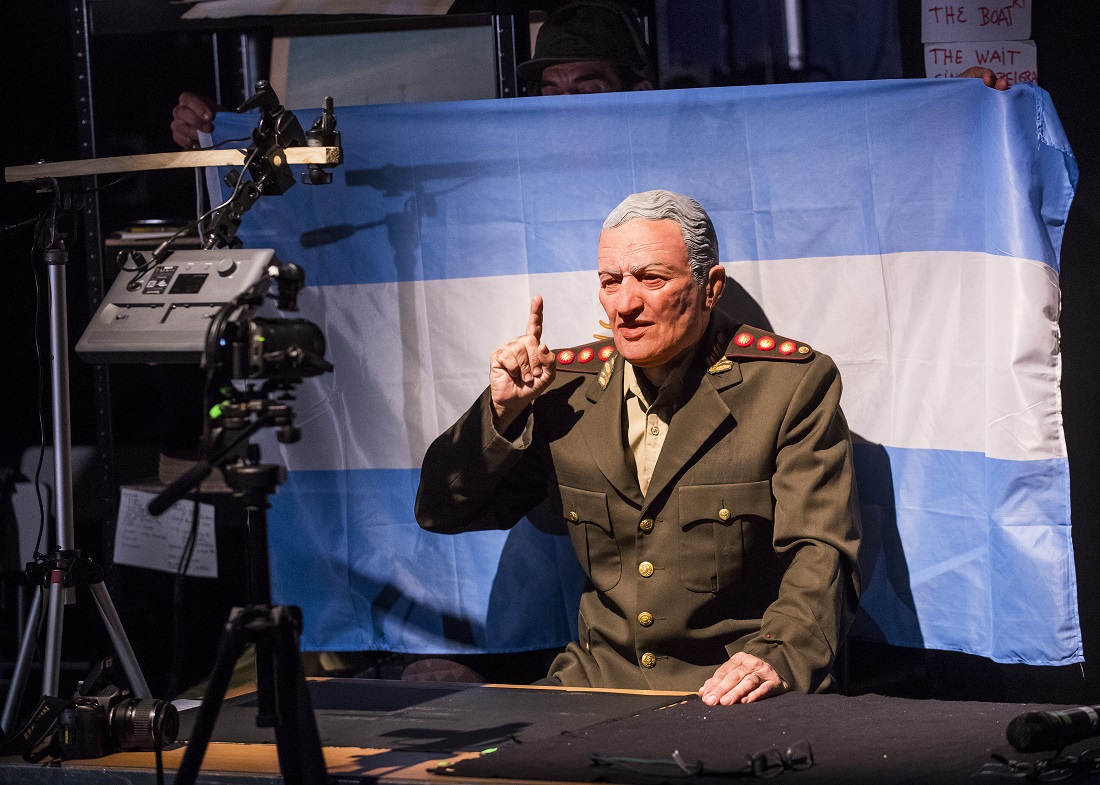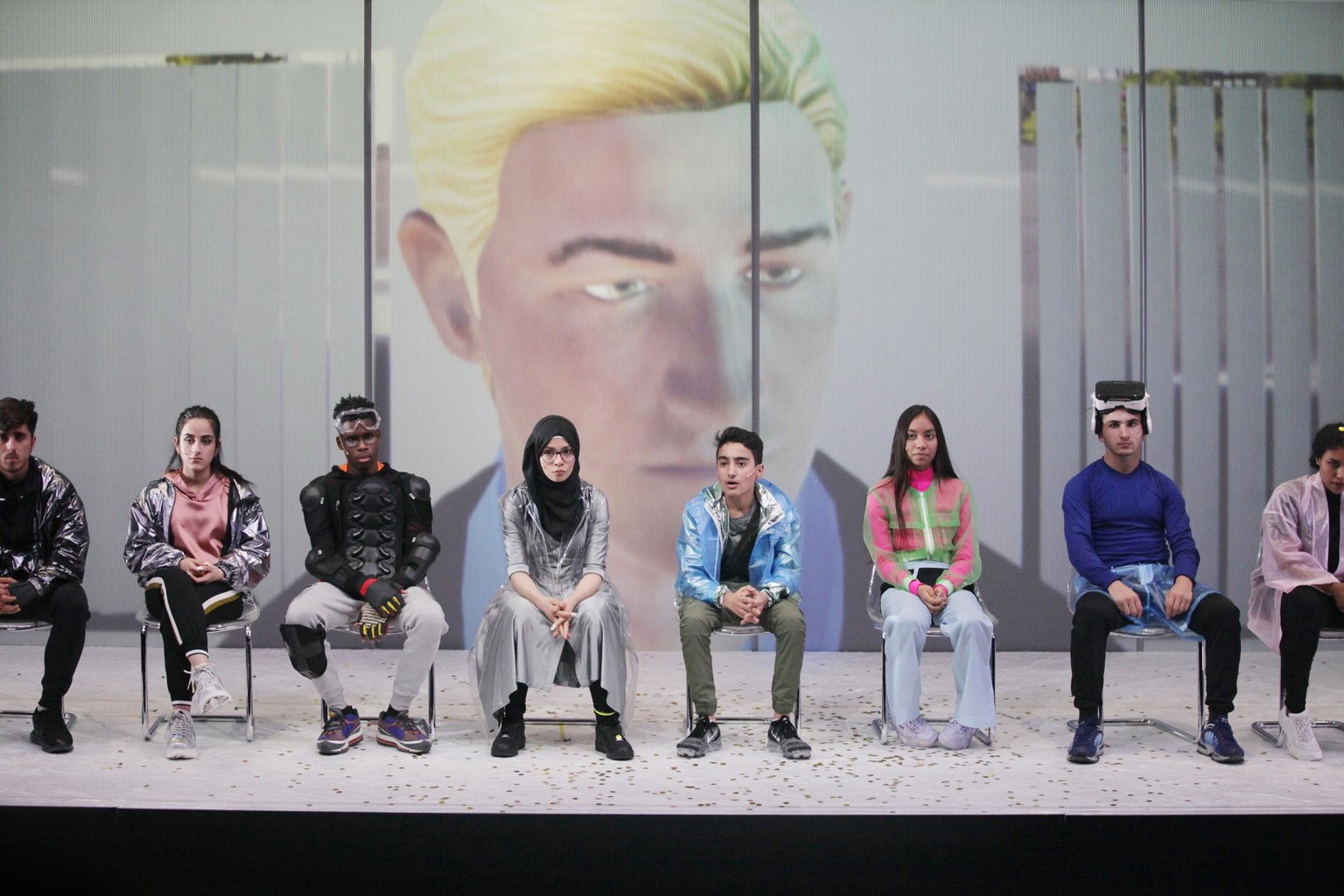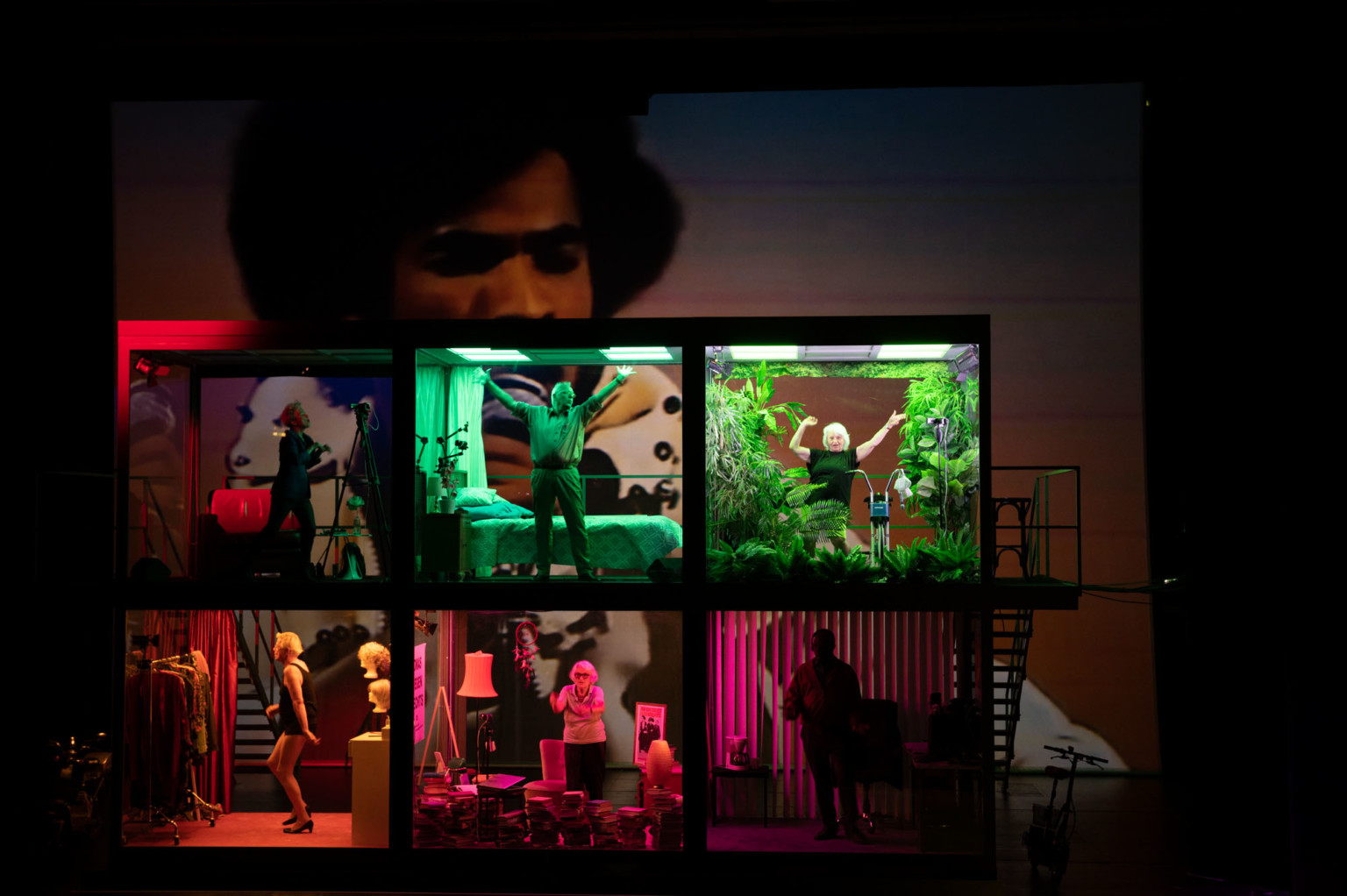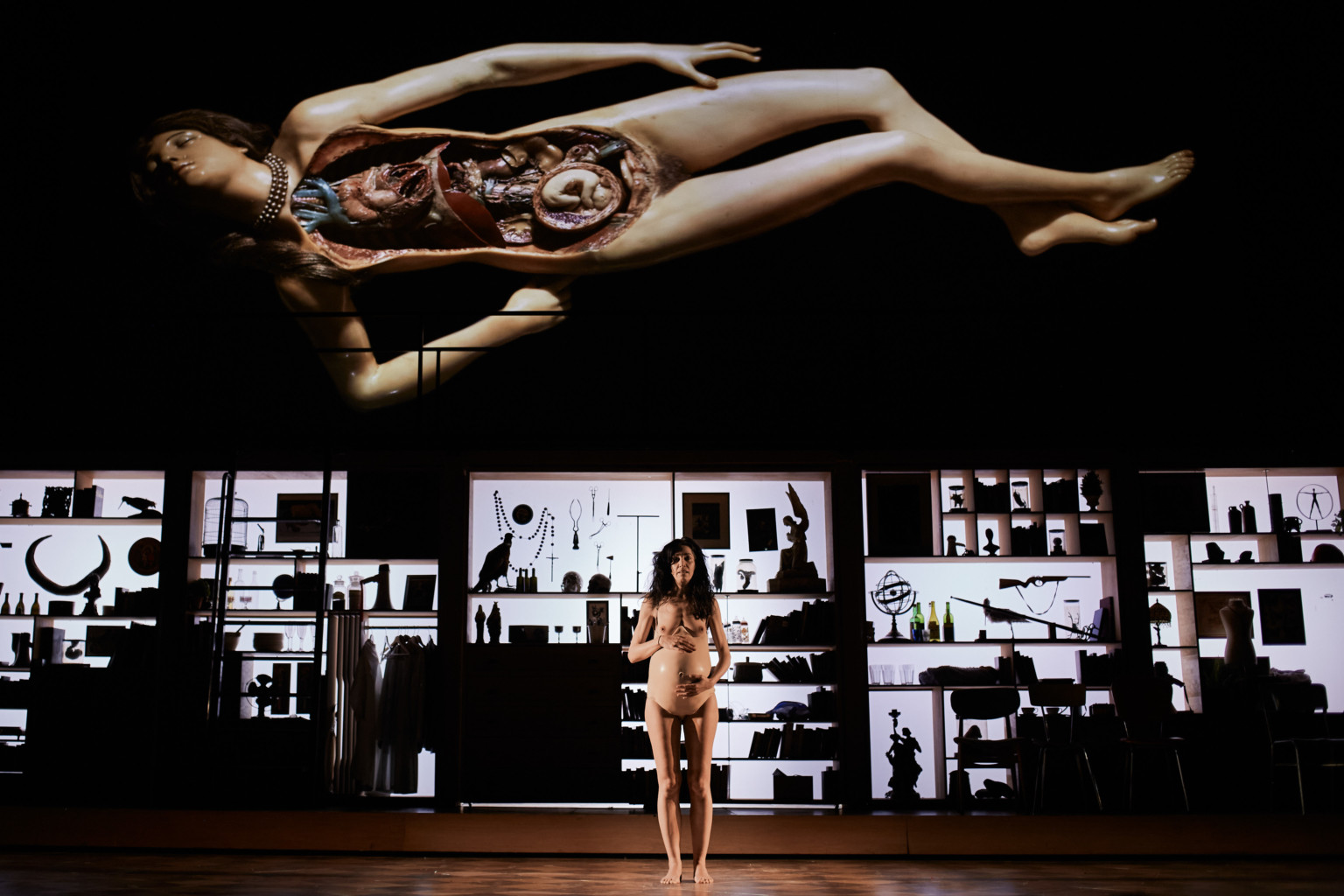
Lola Arias
The Argentinian writer and theatre and film director Lola Arias has been awarded the International Ibsen Award 2024.
Lola Arias is a multifaceted artist whose work brings together people from different backgrounds, like war veterans, refugees and sex workers, in theatre, film, literature, music and visual art projects.
Arias’s productions blur the boundaries between reality and fiction. As Etchells writes in Re-enacting Life (2019):
”Sitting in the theatre, wandering a site-specific location or watching a film, we are inculcated into others’ narratives wound into their complexities, joys and disappointments. At the same time, we are also invited and at times confronted, in an extraordinary and acute way, to reflect on the contingencies and fragilities of our own stories, individual and collective, as well as on our shifting, unresolved relation to the precarious and dangerous machinery that is social and political history.”
The International Ibsen Award ceremony will take place at Nationaltheatret in Oslo October 13th.
Video
An introduction to the life and work of Lola Arias.
Lola Aria's Background and Work
Arias studied Literature at the Universidad de Buenos Aires and Dramaturgy at the Escuela de Artes Dramáticas (Buenos Aires) and participated in playwrights’ residencies at the Royal Court Theatre (London) and Casa de América (Madrid). In 2014 she completed the Film Laboratory workshop at the Universidad Di Tella (Buenos Aires).
Between 2001 and 2007, she wrote and directed six fictional pieces: The Squalid Family, Studies of Loving Memory, Poses for Sleeping, and the trilogy Love is a Sniper, Revolver Dream, and Striptease. Since 2007, she has worked in documentary theatre, creating over twelve plays in collaboration with people who have lived through different events and historical experiences.
My Life After (CTBA, Buenos Aires, 2009) is based on the life stories of six performers who re-enacted their parents’ lives during the dictatorship in Argentina. Familienbande (Münchner Kammerspiele, Munich, 2009) deals with role models in a contemporary family with three parents. That Enemy Within (HAU, Berlin, 2010) is a project about identity made in collaboration with two identical twins. The Year I was Born (Teatro a Mil, Santiago, 2012) is based on the stories of people born during Pinochet’s dictatorship.
Melancholy and Demonstrations (Wiener Festwochen, Vienna, 2012) is a play about Arias’s mother’s depression. The Art of Making Money (Stadttheater Bremen, 2013) is a play about fiction and compassion performed by beggars, prostitutes, and street musicians from the city of Bremen. And The Art of Arriving (Stadttheater Bremen, 2015) is a kind of tutorial that reflects on how to start a new life in another country, using the example of Bulgarian kids living in Germany.

Minefield (Royal Court Theatre, London, 2016), brings together British and Argentinian veterans of the Falkland/Malvinas war to share their experience of the conflict and life since. Atlas des Kommunismus (Maxim-Gorki Theater, Berlin, 2016) gathers the stories of women between the ages of 8 and 84 with backgrounds in East Germany. What They Want to Hear (Münchner Kammerspiele, Munich, 2018), is the reconstruction of the real case of a Syrian archaeologist trapped in German bureaucracy for years with no legal status.

Futureland (Maxim-Gorki Theater, Berlin, 2019) is a science-fiction documentary piece with unaccompanied minors, teenagers who escaped from war, poverty, violence and migrated to Germany on their own. I am not dead (Staatstheater Hannover and Theaterformen Festival, 2021) is a piece in which a group of people over sixty-five and their caregivers reflect on their secondary role in today's pandemic society. Mother Tongue is an encyclopaedia on reproduction in the twenty-first century, created from different stories intersected by motherhood, performed by various communities in Bologna, Madrid and Berlin. In Happy Nights (Theater Bremen, 2023) the audience is invited to enter immersive rooms, to meet dancers and sex workers and reflect with them on our relationships with sex, money, lust, and pain.

Her first feature film Theatre of War (2018) was selected for the 68th Forum of the Berlinale Film Festival and received several prizes including the CICAE Art Cinema Award, the Prize of the Ecumenical Jury, Best Director Award at the 20th BAFICI Festival, the Movistar+ Prize for Best Documentary Film at Documenta Madrid and the Silver Condor Award for Best Adapted Script. Arias also created the short film Far Away from Russia (2021), commissioned by Manchester International Festival.

Her second feature film, Reas (2024), premiered at the 74th Forum of the Berlinale Film Festival. The film brings together stories of cis women and trans people who have been in prison, in a reinvention of the musical genre in documentary format, mixing the former inmates’ personal stories and experiences with music and choreography.

In the visual arts and curating field, she developed My Documents, a lecture-performance cycle where artists from different backgrounds present personal research. She also conceived the durational performance Audition for a Demonstration, a spontaneous audition for a re-enactment of a demonstration that happened in the past. She created the exhibition Stunt Double (Buenos Aires, 2016), in which four different installations rebuilt the last 40 years of Argentinian social and political history through reenactments, interviews and protest songs; and Ways of walking with a book in your hand (Buenos Aires, 2017), a site-specific project for readers in libraries and public spaces.
With Ulises Conti she released the albums Love is a Sniper (2007) and Those who do not sleep (2011), and with Stefan Kaegi she developed the projects Chácara Paraíso (2007), Airport Kids (2008) and Ciudades Paralelas (2010), a festival of urban interventions in Berlin, Buenos Aires, Warsaw, Zurich and other cities.
She has published poetry, fiction and plays: Love is a Sniper (2007, Entropía), The Postnuclear Ones (2011, Emecé), My Life After and Other Plays (2016, Penguin Random House) and a bilingual edition of her play Minefield (2017, Oberon Books). In 2019, Performance Research Studies published Re-enacting Life, a book that gathers together articles, plays and documents from her career.
Lola Arias has received prestigious awards (Premio Konex 2014, Preis der Autoren 2018), her films have been shown in international film festivals such as Berlinale, San Sebastian and BFI, and her theatre work has been performed at festivals such as Festival d’Avignon; Lift Festival, London; Under the Radar, NY; Theater Spektakel, Zurich; and in venues including Théâtre de la Ville, Paris; Redcat, LA, Walker Art Centre, Minneapolis; Parque de la Memoria, Buenos Aires; Museum of Contemporary Art Chicago, and Moma Museum, NY.


